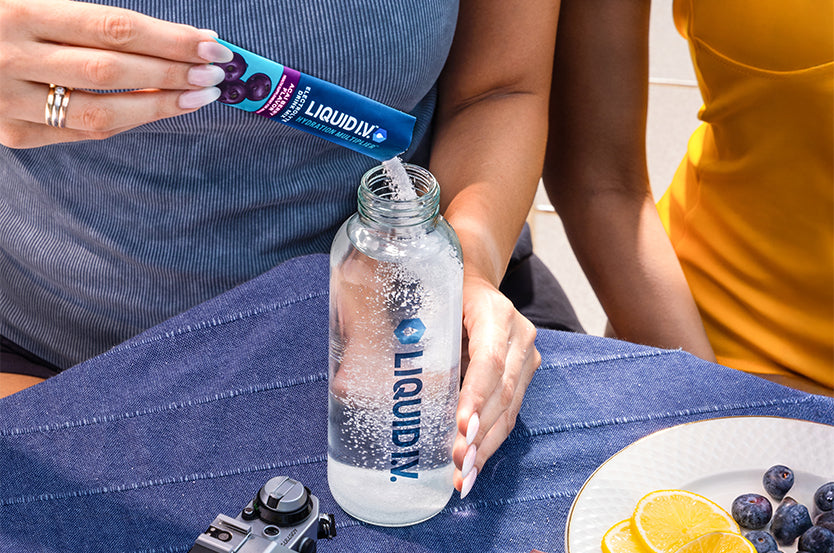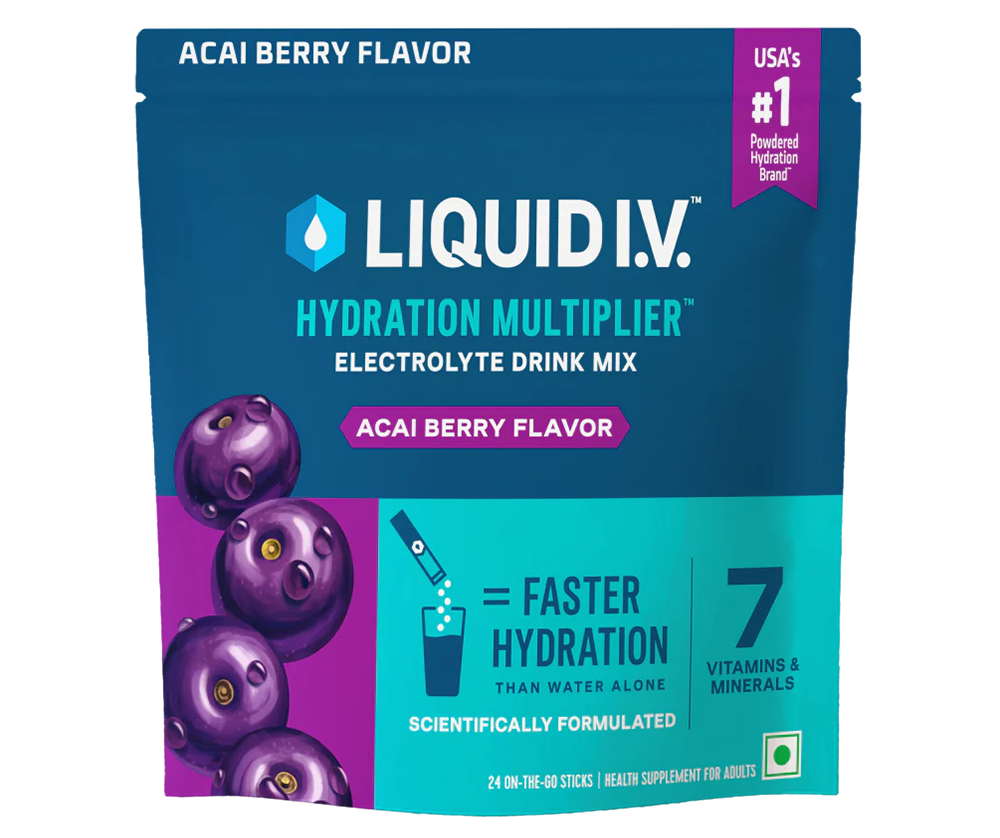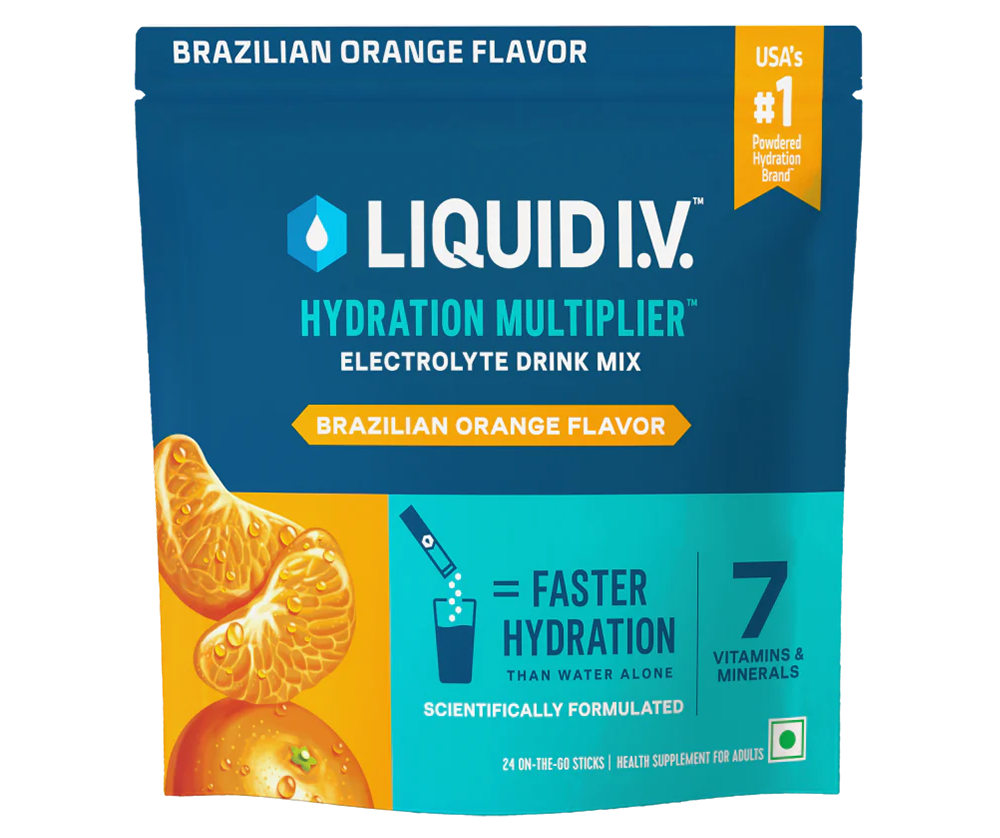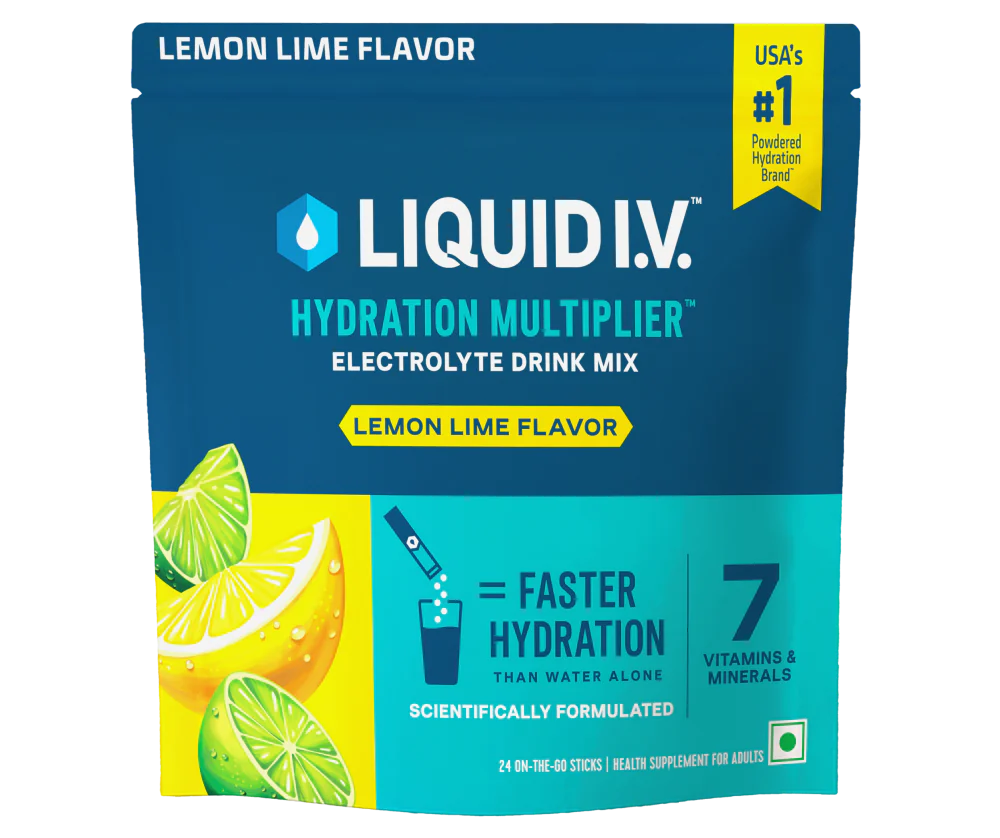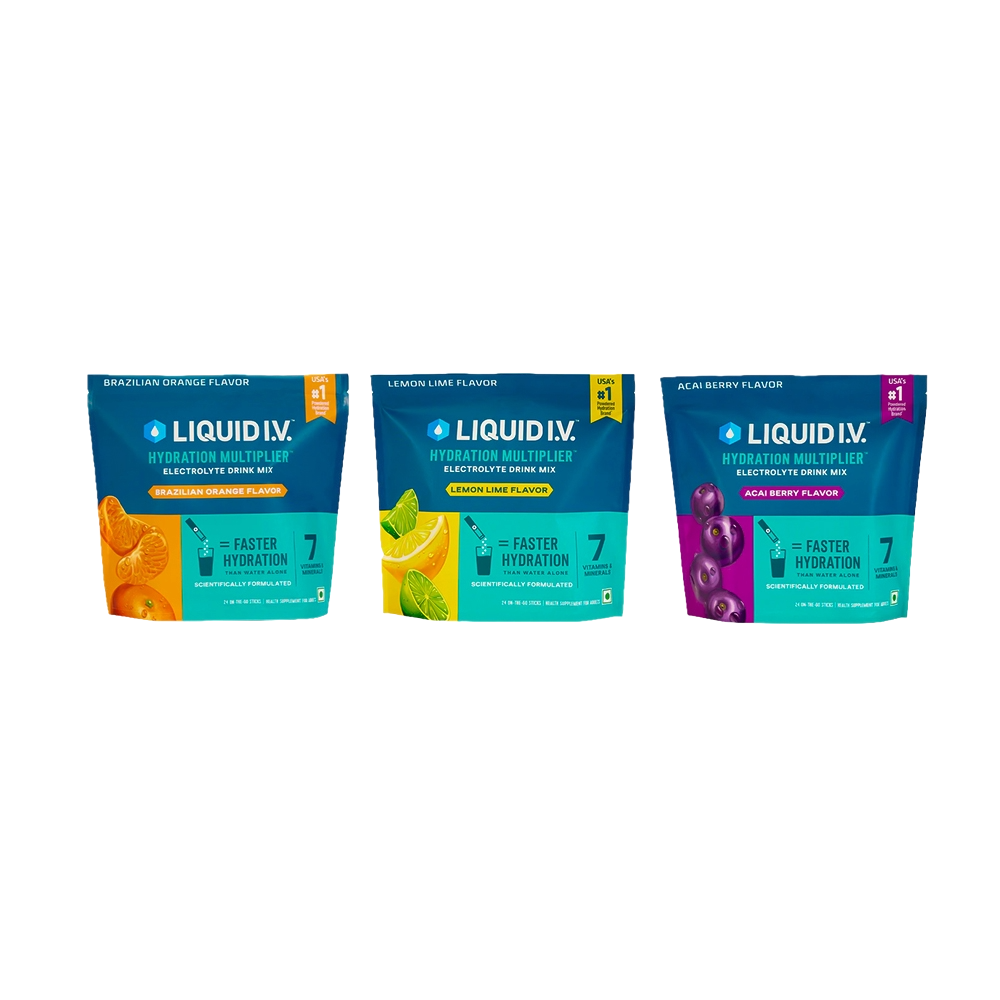Dehydration: Signs, Symptoms, and How to Stay Hydrated
Ever had that annoying headache, sudden wave of tiredness, or felt like you could drink a whole ocean? Yep, you might be dehydrated basically, your body is losing more fluids than it's getting. Dehydration is super common, but knowing the deets is key to staying healthy. (1) This blog post will break down what dehydration is, how serious it can get, the first symptoms you might notice, why it happens, and what can make you more likely to get mild to moderately dehydrated. Plus, we'll cover the possible complications and, most importantly, how to tackle and prevent it. Oh, and we'll chat about how products like Liquid I.V. can help keep you hydrated.
What is Dehydration?
Dehydration happens when your body loses more water than it takes in. This imbalance messes with all the important stuff your body does. Maintaining fluid balance is important for normal functioning of our body. Water is our life - it helps distribute nutrients to cells and gets rid of waste. Plus, it keeps your body temperature in check. (2)
When you lose more water than you take in, your total body water volume drops. This can also throw off the balance of electrolytes like sodium and potassium, which are super important for your nerves and muscles. (2)
Levels of Dehydration
Dehydration isn't just a one-time thing; it can range from mild to severe based on how much body weight you've lost due to not having enough fluids. Generally, dehydration is split into three levels: mild, moderate, and severe. (3)
Mild dehydration, characterized by a fluid loss making you experience a slightly dry mouth, increased thirst, and reduced peeing.
As dehydration progresses to the moderate level, the signs become more noticeable. Your mouth will feel drier, there may be an increased heart rate, further reduced peeing, tiredness and headaches.
Severe dehydration, representing a very high fluid loss and, is a serious condition requiring immediate medical attention.
Symptoms of Dehydration
The symptoms of dehydration can vary depending on age and extent of fluid loss. Recognizing these signs is the first step to tackling dehydration. In adults, early signs of mild to moderate dehydration can include feeling super thirsty, peeing less often, and having darker pee. Other common symptoms are feeling tired, dizzy, and having a dry mouth. Some people might also get headaches or muscle soreness. If you feel really bad, see a doctor. (4)
Causes of Dehydration
Dehydration can happen for a bunch of reasons; it is basically an imbalance between fluid in and fluid out. Sometimes, it's as simple as not drinking enough water, because you're busy, traveling, or it's hot and humid.
Excessive fluid loss is another biggie. Sweating, a natural cooling process, leads to significant water loss, especially in hot weather, during workouts. Some medical conditions like diarrhoea, and vomiting can also disturb this balance. (3)
What are the Risk Factors for Dehydration?
Our climate affects us the most. Hot or humid weather makes you sweat more, and high altitudes can cause faster fluid loss through breathing. Active folks like athletes and those spending a lot of time outdoors are at higher risk because they sweat more. (5)
Complications of Dehydration
When your body doesn't get enough water, it can cause a lot of problems. For example, if your mouth gets dry, it can make your breath smell bad. Not having enough water can also make you feel really tired and give you headaches. Your stomach might hurt because your muscles cramp up and your intestines try to take water from the food you eat. It's important to drink enough water to keep your body working well and avoid these issues. (6)
How to Treat Dehydration
The main goal in treating dehydration is to get the fluid balance back. Drinking water is a good start! Sip fluids slowly and frequently. Adding electrolyte rich drinks can help in balancing the fluids more effectively, especially when you've been sweating a lot. Drinking skim milk, coconut water or fruit juices can add some natural sugars and electrolytes along with water. Severe dehydration needs immediate medical help. (1,3)
How Liquid I.V.™ Can Help
Liquid I.V. is an electrolyte mix that's become super popular for boosting hydration. It has key electrolytes like sodium and potassium, plus glucose. One of its standout features is LIV HYDRASCIENCETM technology, that is designed to maximize how your body absorbs water. Compared to just drinking water alone, Liquid I.V. can help hydrate you faster because of its optimized mix of electrolytes and glucose. Its single-serving stick makes it super convenient for hydration on the go, whether you're traveling or exercising. While Liquid I.V. is great for enhancing hydration in various situations, remember it shouldn't replace your regular daily water intake and isn't a substitute for professional medical treatment. (7)
Conclusion
Staying hydrated is super important for keeping your body in top shape. Knowing the signs of dehydration, which can vary depending on your age, is crucial for acting quickly. Understanding the common causes and risk factors can help you take steps to prevent dehydration. Mild to moderate dehydration can usually be managed with drinking water and electrolyte containing solutions, but severe dehydration needs immediate medical attention. Regularly drinking water and using electrolyte-enhanced drinks like Liquid I.V. when you're losing more fluids can really boost your hydration and overall well-being. Ultimately, listening to your body and responding to dehydration signals is key to staying healthy.
FAQs
-
How do I tell if I'm dehydrated?
You can tell if you're dehydrated by looking for symptoms like feeling thirsty, having darker pee or peeing less often, feeling dizzy or lightheaded. Checking the color of your pee is a simple way to monitor your hydration status; pale yellow indicates good hydration, while darker suggests dehydration. -
Can you drink lots of water and still be dehydrated?
Yes, it is possible to drink a lot of water and still be dehydrated. This can happen if you have an imbalance of electrolytes, which are important for retaining fluids. -
How long does it take to become dehydrated?
The time it takes to become dehydrated can vary. Mild dehydration can set in within just a few hours, especially if you are losing fluids rapidly through activities like intense exercise or sweating in hot conditions. Progressing to moderate or severe dehydration typically takes longer unless due to specific medical conditions or environmental factors. -
What are the side effects of dehydration?
Dehydration can cause a range of side effects, from mild to severe. Mild to moderate dehydration can lead to symptoms like headache, dizziness, fatigue, dry mouth, and muscle cramps. -
How much to drink if dehydrated?
If you are mildly dehydrated, it's important to drink fluids slowly and steadily throughout the day, rather than trying to consume a large amount all at once. Aim for water or electrolyte rich drinks to help replenish water, electrolytes and glucose.

